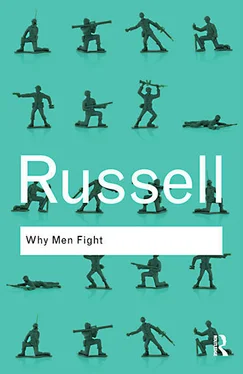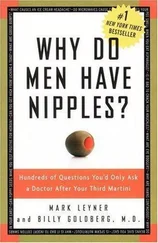There is one way by which organization and liberty can be combined, and that is, by securing power for voluntary organizations, consisting of men who have chosen to belong to them because they embody some purpose which all their members consider important, not a purpose imposed by accident or outside force. The State, being geographical, cannot be a wholly voluntary association, but for that very reason there is need of a strong public opinion to restrain it from a tyrannical use of its powers. This public opinion, in most matters, can only be secured by combinations of those who have certain interests or desires in common.
The positive purposes of the State, over and above the preservation of order, ought as far as possible to be carried out, not by the State itself, but by independent organizations, which should be left completely free so long as they satisfied the State that they were not falling below a necessary minimum. This occurs to a certain limited extent at present in regard to elementary education. The universities, also, may be regarded as acting for the State in the matter of higher education and research, except that in their case no minimum of achievement is exacted. In the economic sphere, the State ought to exercise control, but ought to leave initiative to others. There is every reason to multiply opportunities of initiative, and to give the greatest possible share of initiative to each individual, for if this is not done there will be a general sense of impotence and discouragement. There ought to be a constant endeavour to leave the more positive aspects of government in the hands of voluntary organizations, the purpose of the State being merely to exact efficiency and to secure an amicable settlement of disputes, whether within or without its own borders. And with this ought to be combined the greatest possible toleration of exceptions and the least possible insistence upon uniform system.
A good deal may be achieved through local government by trades as well as by areas. This is the most original idea in syndic-alism, and it is valuable as a check upon the tyranny which the community may be tempted to exercise over certain classes of its members. All strong organizations which embody a sectional public opinion, such as trade unions, co-operative societies, professions, and universities, are to be welcomed as safeguards of liberty and opportunities for initiative. And there is need of a strong public opinion in favour of liberty itself. The old battles for freedom of thought and freedom of speech, which it was thought had been definitively won, will have to be fought all over again, since most men are only willing to accord freedom to opinions which happen to be popular. Institutions cannot preserve liberty unless men realize that liberty is precious and are willing to exert themselves to keep it alive.
There is a traditional objection to every imperium in imperio , but this is only the jealousy of the tyrant. In actual fact, the modern State contains many organizations which it cannot defeat, except perhaps on rare occasions when public opinion is roused against them. Mr. Lloyd George’s long fight with the medical profession over the Insurance Act was full of Homeric fluctuations of fortune. The Welsh miners in 1915 routed the whole power of the State, backed by an excited nation. As for the financiers, no Government would dream of a conflict with them. When all other classes are exhorted to patriotism, they are allowed their 4½ per cent. and an increase of interest on their consols. It is well understood on all sides that an appeal to their patriotism would show gross ignorance of the world. It is against the traditions of the State to extort their money by threatening to withdraw police protection. This is not due to the difficulty of such a measure, but only to the fact that great wealth wins genuine admiration from us all, and we cannot bear to think of a very rich man being treated with disrespect.
The existence of strong organizations within the State, such as trade unions, is not undersirable except from the point of view of the official who wishes to wield unlimited power, or of the rival organizations, such as federations of employers, which would prefer a disorganized adversary. In view of the vastness of the State, most men can find little political outlet for initiative except in subordinate organizations formed for specific purposes. Without an outlet for political initiative, men lose their social vigour and their interest in public affairs: they become a prey to corrupt wire-pullers, or to sensation-mongers who have the art of capturing a tired and vagrant attention. The cure for this is to increase rather than diminish the powers of voluntary organizations, to give every man a sphere of political activity small enough for his interest and his capacity, and to confine the functions of the State, as far as possible, to the maintenance of peace among rival interests. The essential merit of the State is that it prevents the internal use of force by private persons. Its essential demerits are, that it promotes the external use of force, and that, by its great size, it makes each individual feel impotent even in a democracy. I shall return in a later lecture to the question of preventing war. The prevention of the sense of individual impotence cannot be achieved by a return to the small City State, which would be as reactionary as a return to the days before machinery. It must be achieved by a method which is in the direction of present tendencies. Such a method would be the increasing devolution of positive political initiative to bodies formed voluntarily for specific purposes, leaving the State rather in the position of a federal authority or a court of arbitration. The State would then confine itself to insisting upon some settlement of rival interests: its only principle in deciding what is the right settlement would be an attempt to find the measure most acceptable, on the whole, to all the parties concerned. This is the direction in which democratic States naturally tend, except in so far as they are turned aside by war or the fear of war. So long as war remains a daily imminent danger, the State will remain a Moloch, sacrificing sometimes the life of the individual, and always his unfettered development, to the barren struggle for mastery in the competition with other States. In internal as in external affairs, the worst enemy of freedom is war.
In spite of the fact that most nations, at most times, are at peace, war is one of the permanent institutions of all free communities, just as Parliament is one of our permanent institutions in spite of the fact that it is not always sitting. It is war as a permanent institution that I wish to consider: why men tolerate it; why they ought not to tolerate it; what hope there is of their coming not to tolerate it; and how they could abolish it if they wished to do so.
War is a conflict between two groups, each of which attempts to kill and maim as many as possible of the other group in order to achieve some object which it desires. The object is generally either power or wealth. It is a pleasure to exercise authority over other men, and it is a pleasure to live on the produce of other men’s labour. The victor in war can enjoy more of these delights than the vanquished. But war, like all other natural activities, is not so much prompted by the end which it has in view as by an impulse to the activity itself. Very often men desire an end, not on its own account, but because their nature demands the actions which will lead to the end. And so it is in this case: the ends to be achieved by war appear in prospect far more important than they will appear when they are realized, because war itself is a fulfilment of one side of our nature. If men’s actions sprang from desires for what would in fact bring happiness, the purely rational arguments against war would have long ago put an end to it. What makes war difficult to suppress is that it springs from an impulse, rather than from a calculation of the advantages to be derived from war.
Читать дальше












